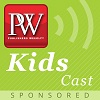New Orleans is the perfect place for a booksellers conference, says Southern Independent Booksellers Alliance executive director Linda-Marie Barrett, who gathered SIBA booksellers there two years ago. “It’s a very neighborhood-oriented city, so it seems able to support a large number of bookstores. They work together rather than seeing themselves in competition.”
Noting that most of SIBA’s dozen or so Louisiana bookstore members are in New Orleans (population 370,000, according to the 2022 U.S. census), Barrett says, “It’s unusual for a city its size to have so many bookstores, and some have unique store models. There are Black-owned, queer-owned stores. Depending on your interest, you’ll find a space where you feel seen as a customer and as a reader.” Adding to the vibrancy of the local indie scene, several bookstores have opened since the pandemic, while some older ones have changed owners or undergone renovations (or both).
Given the allure of the pedestrian-friendly French Quarter, a number of longtime indie stores are clustered there, within walking distance of CI2024. Faulkner House Books, which specializes in classic literature, sells new and used books in an 1837 townhouse in Pirate’s Alley; its children’s inventory includes two shelves of classics, along with books relating to New Orleans. The Historic New Orleans Collection museum bookshop stocks adult and children’s books by authors with Louisiana connections, as well as books about the region. Several antiquarian bookstores, including Beckham’s Book Shop and French-language-focused Arcadian Books & Prints, carry children’s books, too: Crescent City Books has an inventory of 25% new, 75% used and rare books, and Dauphine Street Books owner Steve Lacy promises “a good selection” of children’s books. A pair of children’s boutiques, Nola Kids and Nola Jr., carry books by local authors.
East of the Quarter, in the Marigny neighborhood, Frenchmen Art & Books describes itself as “radical booksellers since 1978.” Approximately 10% of its inventory is children’s books, primarily picture books relating to New Orleans.
Six blocks away, Baldwin & Co., opened by DJ Johnson in 2021, focuses on books by Black authors. Barrett describes Baldwin & Co. as “extraordinary”: “It’s already added so much to the city, and DJ makes great coffee.” Baldwin’s mission, Johnson told PW in 2022, is to “eliminate mass incarceration through the promotion of literacy.” With a 2,400-square-foot sales area, café, and courtyard, there’s plenty of space to throw a party for CI2024 booksellers on the evening of Sunday, June 9.
A mile away, in Bywater, a young woman known only as Ray opened Parlour Books in 2022 to sell, she says, “highly curated used books that aren’t just written by dead white men.” Housed in a 160-square-foot space next door to Frady’s, a popular deli, Parlour is not just the newest shop on the bookstore tour, it’s also the coziest.
Big Easy, bigger bookstores
The 45-year-old Garden District Bookshop is housed in the Rink, a building constructed for roller skating during the 1884 World’s Cotton Centennial Exposition. Since the recent addition of a dedicated children’s corner with a built-in bench—plus a cocktail bar for parents and other adults—co-owner Carroll Gelderman Zimmer says sales of children’s books are up 32% over last year.
In Uptown, Octavia Books, opened in 2000 by Tom Lowenburg and Judith Lafitte (who may or may not be a descendant of the pirate), is in the midst of doubling in size, from 2,000 square feet to 4,000. “We’re also shifting things around,” Lafitte says. “It’ll be a different look. I hope we’re ready by CI2024.”
Octavia is not the only NOLA bookstore to expand: Crescent City Comics in Uptown, which opened in 1994 in an 1,800-square-foot space, closed in 2005 due to Hurricane Katrina but relaunched in 2009 in a 2,200-square-foot space. In Carrollton, Blue Cypress Books has sold new and used books for adults and children for 16 years. Three years ago, what was then a 1,000-square-foot store moved across the street into a 2,100-square-foot retail space. “We have room for events here,” says owner Elizabeth Ahlquist. “We’re busy all the time now.”
Community Book Center specializes in literature of the African diaspora, and 25%–30% of its inventory is children’s books. Vera Warren-Williams opened CBC in 1983 to be a literary and cultural hub for Tremé, one of the oldest neighborhoods in the city, with a predominantly African American population. Billing CBC as “more than a bookstore,” Warren-Williams hosts storytelling sessions, meetings, musical performances, book fairs, and other community events in a 2,000-square-foot space.
Then there’s Tubby & Coo’s Traveling Bookshop, specializing in books by LGBTQ authors and other underrepresented voices; 50% of its inventory is children’s books. Bucking industry norms, the 10-year-old indie began as a bricks-and-mortar store but switched to a decentralized business model last year. Besides pop-ups, owner Candice Huber operates “pocket bookstores” inside two larger businesses: a Mid-City vegan café and a retail collaborative in the Lower Garden District. Tubby & Coo’s will welcome booksellers on the bookstore tour at the Good Shop collaborative.
CI2024’s bookstore tours remain within the city limits, except for a stop by one group in suburban Chalmette. There, Two Fish Books, an 800-square-foot new-and-used bookstore for all ages, was launched in 2021 by two retired high school teachers inside a separately owned eatery, Café Aquarius. While neither owner has attended Winter Institute or Children’s Institute, they leapt at the opportunity to participate in a CI2024 bookstore tour.
“We’re excited to welcome people to St. Bernard Parish’s only bookstore,” co-owner Gail Calato says. “We’re still new to this business, so we know this is going to be beneficial; we’re going to learn a lot from the booksellers coming to see us.”





